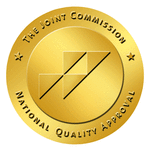Are you married to an addict or alcoholic? You probably feel exhausted, confused, and not just a little bit angry. We’re here to let you know that you’re not alone. But that you need to make changes.
Helping an addicted spouse may or may not end in their road to recovery. The merry-go-round you are on keeps spinning and you want to make it stop. You want to keep your marriage. But you can no longer decipher the lies from the truths.
Here, we will discuss points on how to navigate through some common issues so you can start making better decisions. Then, we invite your questions, experience(s), and comments at the end.
How To Help A Drug Addict: The Law Of Attraction
The Law of Attraction implies positive attracts positive. If you are acting in a negative way and expressing feelings of sadness and negativity, then it is likely your spouse will feed off of that and/or use this against you. If you behave in a positive way and live your life positively, despite your spouse’s addiction, it may generate positive results.
If you perpetuate anger, disappointment, and sadness, you may generate similar results in the exchange you have with your spouse. You may not be able to change someone else, but you can either inspire them to change or inspire yourself to move on. So, what does this look like in practical, real life terms when living in a codependent marriage. How can you live with or love an active drug addict?
You Want The Lies To Stop
WHAT HAPPENS: The lies and manipulation can hurt the most. Some of us would rather our bank account be emptied for a weekend bender than have a spouse look you in the eye and tell you they are sober, when they clearly are not.
WHAT YOU CAN DO ABOUT IT: If you can understand that lies are part of the addiction, the lies may not hurt as much. If part of the disease is to hide the truth to maintain the addiction, then take a step back and expect to be lied to. You know very well, the truth from a lie, deep down inside. If you want the lies to stop, then try to trust your instincts. If something does not sound right or feel right to you, then that is the truth.
You Want Him To Get Into A Program
WHAT HAPPENS: He may have failed at rehabilitation programs, tried to kick the addiction on his own, or refused that he needs help. You are fully aware he has a problem and you know he will need help.
Rehab or detox does not always work, especially not the first time. You do not have to give up simply because your spouse has failed at recovery. You can however change your strategy. If an addict is forced to get help, it probably means they did not want to. How many times have you done something you did not want to do and kept doing it? The person who is addicted should want to get help, not feel like they are doing it for someone else.
WHAT YOU CAN DO ABOUT IT: You cannot control someone into getting help, but you can make it less likely their addiction will run smoothly. Decide to stop enabling a drug addicted or alcohol husband. Shed some light on what is going on to the people around you both who do not know what is really going on. If you have open and honest conversations with people you love and trust they may be able to help and stop enabling the addict. When an addict has nowhere and no one to turn to, sometimes they will have no choice but to see just how unmanageable their life has become.
You Want Him To Stop Hanging Out With Other Drug Users
WHAT HAPPENS: You want to show him how the “friends” he is using with are not a good influence on him. You block or track his calls, you throw his phone out, hide his keys, or confront his friends but he still goes out with them. These are not his friends; these are his dealers, his drug buddies, and people who are in the same point in their life as he is. You cannot compete with anyone that he gets high with. If you try, he will just lie.
WHAT YOU CAN DO ABOUT IT: So try a different approach. Stop caring about who he hangs out with and let him do what he wants to do. Stop fighting him. He knows you want him to stop. You have made the things you want him to change clear. Why play the game?
Stop playing into his addiction and let him realize that you are moving on with your life, and he is welcome to do the same. He only detests you when you try to stop him from using, so perhaps letting him know you are not happy with his addiction, that you are going to live your own life, will send a clear message; he will lose you.
Should you leave an addicted or alcoholic spouse? It’s going to be your decision. But once you decide, get help and support to follow through. This time though, you will be showing him, not just telling him.
Can You Get Your Husband Into Recovery?
- “I will stop using as soon as I get through this stressful month at work.”
- “I need you to help me; I cannot live without you.”
- “I will stop drinking for a month, I can control it.”
You pray that each time you hear words of remorse or shame from your addicted spouse that this will really be the last time. You have read every book on recovery for families and how to help an addict and…no luck. You hang your hopes on the few stories you have heard, like urban legends, of wives who have helped their husbands into recovery. You are skeptical of anyone who tells you that you cannot fix your husband.
The truth is that YOU CANNOT CHANGE YOUR SPOUSE. This is a harsh reality. We know this. So, if you need to share and know that you are not alone, please leave us a comment here. We’ll try to get back with you ASAP.
Photo credit: Dennis Skley





 RSS Feed
RSS Feed
